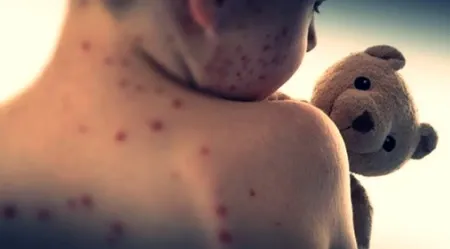What Are the Latest Measles Cases in Israel?

Synopsis
Key Takeaways
- 93 new measles cases reported in Israel.
- Total cases in the outbreak now at 410.
- Estimated infections could range from 950 to 1,700.
- Nationwide vaccination campaign has administered over 105,000 doses.
- Measles is highly contagious and can lead to severe complications.
Jerusalem, Aug 11 (NationPress) The Israeli Health Ministry has disclosed that there are 93 new confirmed cases of measles, increasing the total count in the current outbreak, which initiated in early April, to 410.
The ministry indicated on Sunday that, considering the significant hospitalization rates and community feedback, the estimated number of individuals infected during this outbreak in Israel could be between 950 and 1,700.
Furthermore, the count of active diagnosed patients has risen from 120 to 162, which includes 22 patients currently hospitalized.
Among those hospitalized, a one-year-old infant and a toddler nearly two and a half years old are receiving ECMO support in the intensive care unit.
Approximately a month into the outbreak, the ministry initiated a nationwide vaccination completion campaign, leading to the administration of over 105,000 doses since the launch.
Measles is an exceptionally contagious viral illness that presents with common symptoms such as fever, fatigue, runny nose, and a distinctive rash. In severe cases, it can lead to life-threatening complications.
The ministry also reported a new case of West Nile fever in the southern city of Beer Sheva. This marks the second confirmed occurrence of the disease in Israel, following a report from central Israel in early June, as stated by the Xinhua news agency.
Measles initially infects the respiratory tract before spreading throughout the body, with symptoms including high fever, cough, runny nose, and a full-body rash.
Vaccination remains the most effective method to prevent measles infection and its transmission. The vaccine is both safe and effective in helping the body combat the virus.
Prior to the introduction of the measles vaccine in 1963 and the implementation of widespread vaccination, major epidemics occurred roughly every two to three years, resulting in approximately 2.6 million deaths annually.
In 2023, it is estimated that 107,500 individuals succumbed to measles, predominantly children under the age of five, despite the availability of a safe and cost-effective vaccine.










